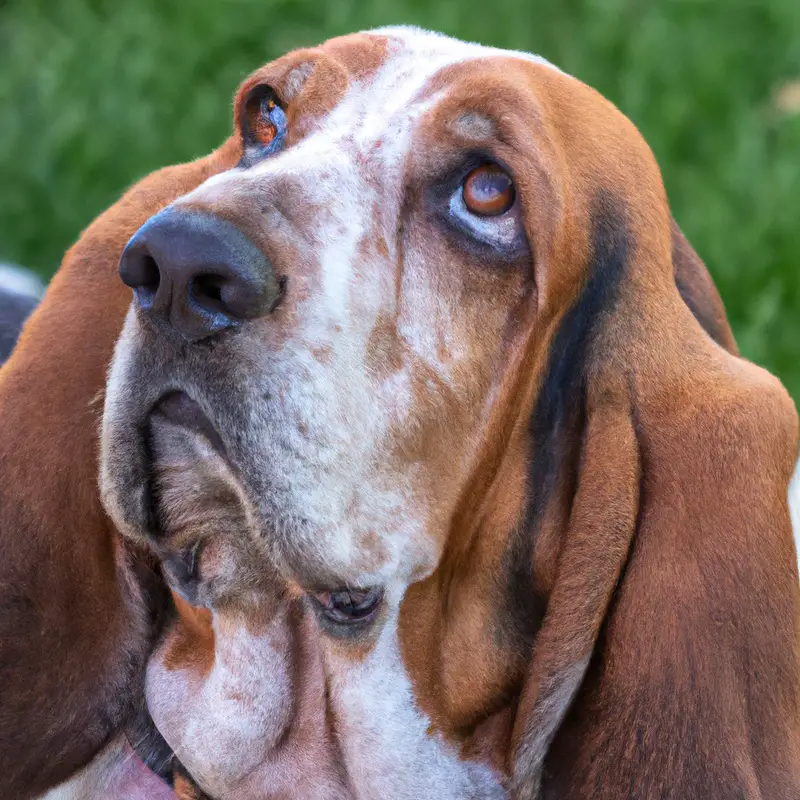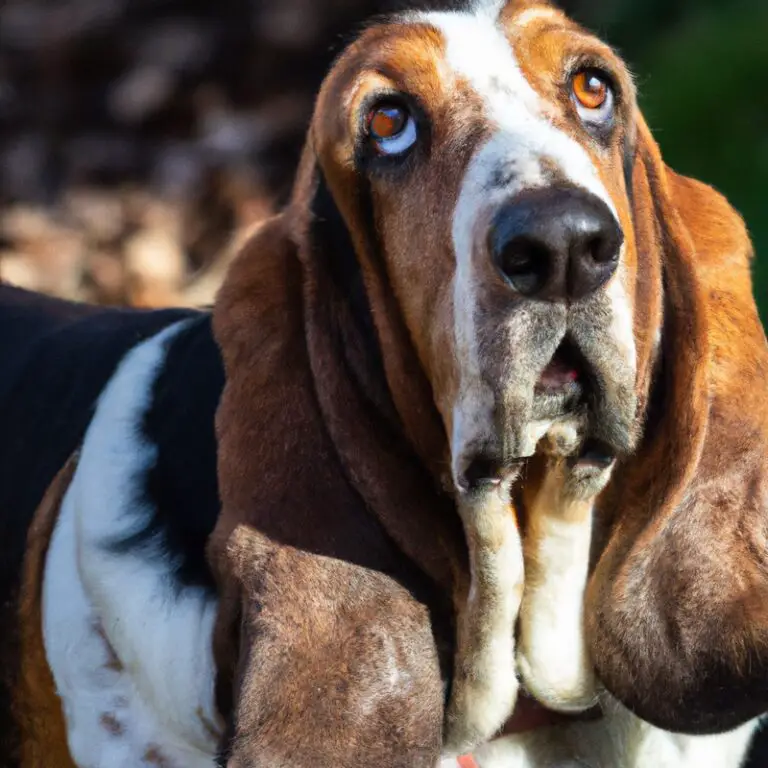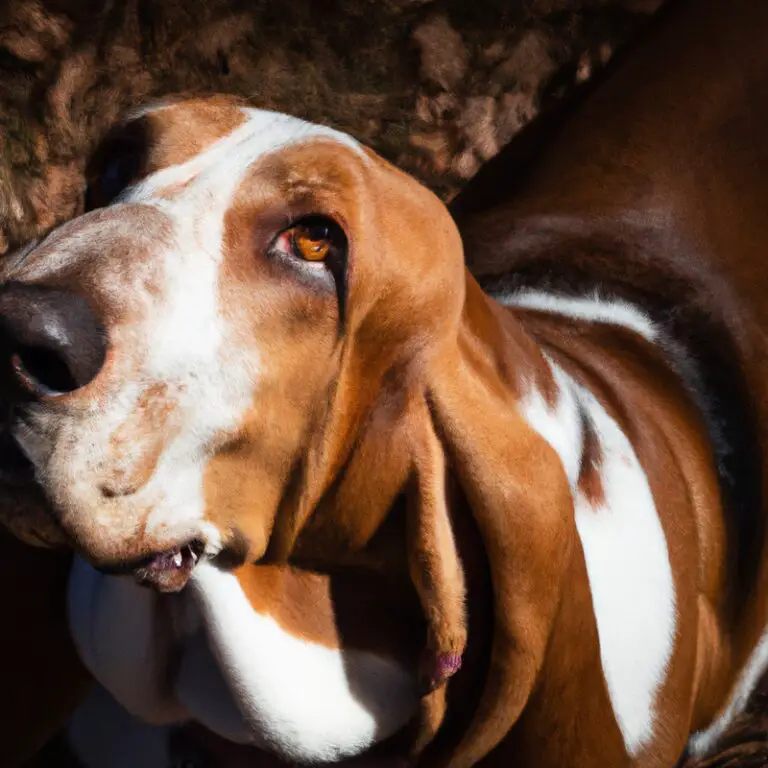Are Basset Hounds Prone To Destructive Behavior When Bored?
Key Takeaways:
- Basset Hounds are generally prone to destructive behavior when bored.
- The tendency for destructive behavior can be mitigated through ample mental and physical stimulation.
- Basset Hounds are intelligent dogs and require regular exercise and engagement to prevent boredom-induced destructiveness.
- Proper training and providing suitable toys or puzzles can help prevent destructive behavior in Basset Hounds.
Are your Basset Hound’s destructive tendencies wreaking havoc on your home?
You’re not alone.
Basset Hounds are known for their charming droopy ears and lovable personality, but they’re also notorious for their potential destructive behavior when they’re bored.
As an expert in canine behavior, I’ve seen firsthand how Basset Hounds can wreak havoc on furniture, shoes, and just about anything in their path when their mental and physical needs are not met.
In this article, we’ll explore the reasons behind their destructive behavior, how to identify it, and most importantly, how to prevent it.
So let’s dive in and save your beloved home from imminent destruction!
| Prone to Destructive Behavior? | When Bored |
| Yes | They can become destructive when left alone for long periods. |
| No | Basset Hounds are generally not prone to destructive behavior if their exercise and mental stimulation needs are met. |
| Depends | Individual Basset Hounds may vary in their destructiveness when bored. Proper training and care can help prevent such behavior. |
Understanding Basset Hounds
Overview of Basset Hounds
Basset Hounds are a unique breed known for their long ears, droopy eyes, and low-slung bodies.
They have a gentle and friendly temperament, making them great family pets.
Bassets are scent hounds, originally bred for hunting small game like rabbits.
They have a keen sense of smell and a stubborn streak, which can sometimes make training a bit challenging.
Overall, Basset Hounds are lovable and laidback dogs that require regular exercise, mental stimulation, and lots of love and attention.
Basset Hound Characteristics
Basset Hounds have distinct characteristics that set them apart from other breeds.
One of their defining features is their long, droopy ears, which give them their signature look.
They also have a deep chest, short legs, and a wrinkled face.
Bassets are known for their gentle and friendly nature.
They are typically laid-back and enjoy spending time with their human family.
However, they can be stubborn at times, which can make training a bit challenging.
Basset Hounds also have a strong sense of smell and a tendency to follow their nose, so it’s important to keep them on a leash or in a secure area.
Typical Behavior Traits
Basset Hounds are known for their laid-back and easygoing nature.
They are generally friendly, gentle, and good with children and other animals.
Bassets have a strong sense of smell and love to explore their environment.
They can be stubborn at times, which may require patient and consistent training.
Bassets are also prone to howling and barking when they are bored or want attention.
Overall, Basset Hounds are loving and loyal companions with a few unique quirks.
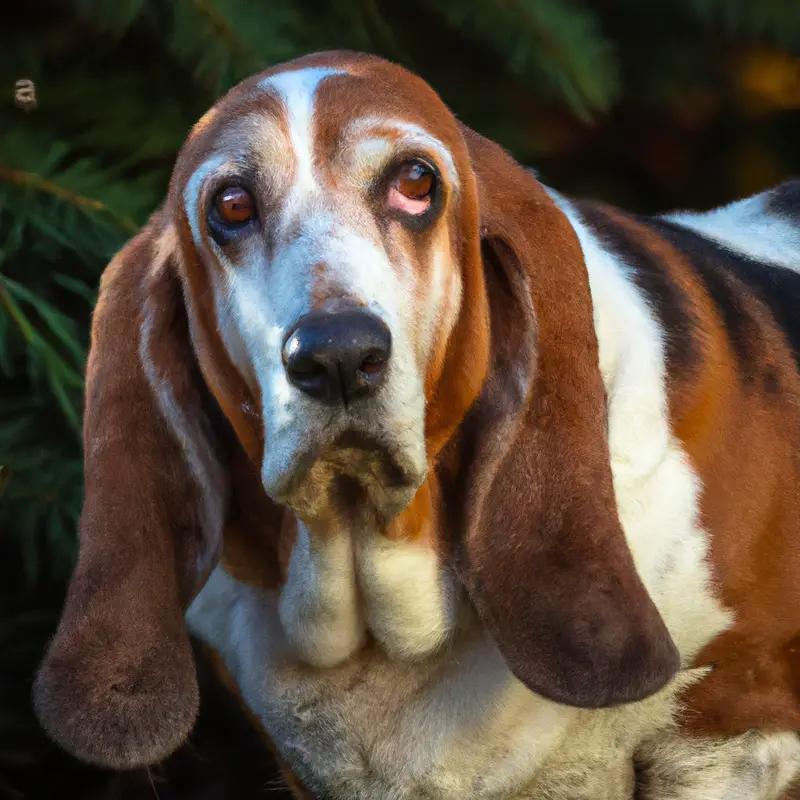
Identifying Destructive Behavior in Basset Hounds
Signs of Boredom in Basset Hounds
Basset Hounds can show signs of boredom in various ways. Some common signs include excessive barking, chewing on furniture or household items, digging in the yard, and even engaging in self-destructive behaviors like tail-chasing.
They may also become more prone to restlessness, pacing, or constantly seeking attention.
It’s important to pay attention to these signs and address your Basset Hound’s boredom to prevent destructive behavior.
Common Destructive Behaviors
Basset Hounds can exhibit certain destructive behaviors when they are bored or lacking mental stimulation. Common destructive behaviors in Basset Hounds include:
- Chewing on furniture, shoes, or household items.
- Digging in the yard or garden.
- Scratching or chewing at doors or walls.
- Excessive barking or howling.
- Attempts to escape or break out of confined spaces.
It’s important to address these behaviors by providing adequate mental and physical exercise and engaging your Basset Hound in stimulating activities to prevent boredom.
Differentiating Between Destructive Behavior and Teething
Differentiating between destructive behavior and teething can be challenging for Basset Hound owners. Destructive behavior usually involves chewing on furniture, shoes, or household items out of boredom or anxiety.
Teething, on the other hand, is a natural process where puppies chew to relieve discomfort.
However, a key distinction is that teething behavior tends to be temporary and more focused on specific objects, while destructive behavior is repetitive and widespread. Monitoring the behavior patterns and providing appropriate toys can help determine whether your Basset Hound is teething or displaying destructive behavior.
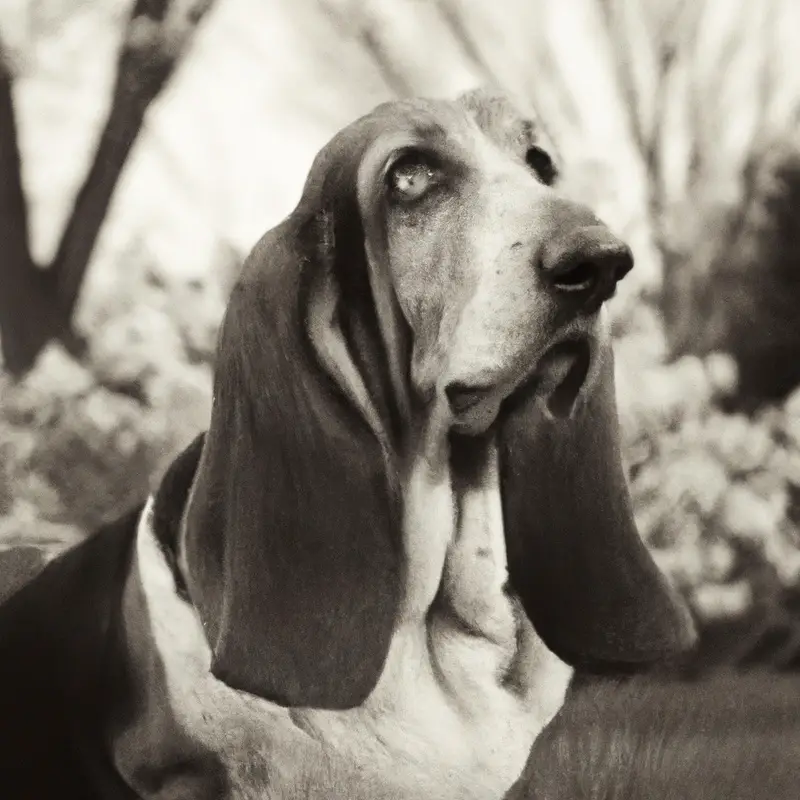
Causes of Destructive Behavior in Basset Hounds
Lack of Mental Stimulation
Basset Hounds can exhibit destructive behavior when they lack mental stimulation. It’s important to keep their minds engaged to prevent boredom.
Without mental stimulation, Basset Hounds may resort to chewing furniture, excessive barking, or digging.
One way to provide mental stimulation is through interactive toys that require problem-solving skills. Puzzle toys and treat-dispensing toys are great options.
Additionally, engaging in training sessions and teaching new tricks can also help keep their minds active.
Regular playtime and interactive games with their human companions are also beneficial.
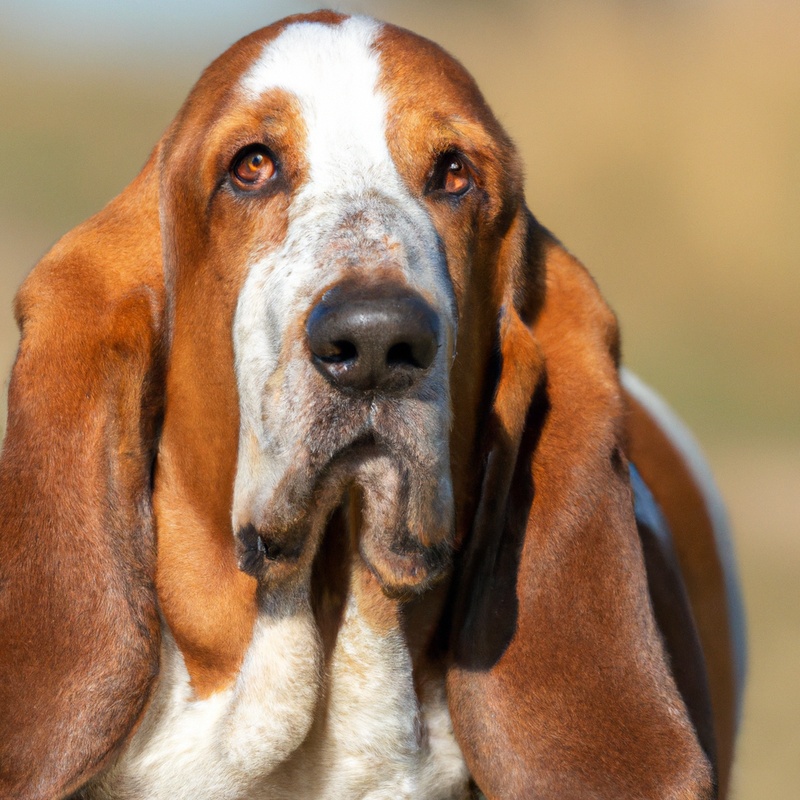
Insufficient Exercise
Basset Hounds require regular exercise to keep them physically and mentally stimulated. Insufficient exercise can contribute to destructive behavior in these dogs.
When they don’t get enough physical activity, Basset Hounds may become bored, restless, and anxious, leading them to engage in destructive behaviors like chewing furniture or digging holes in the yard.
It’s essential to prioritize daily exercise for your Basset Hound to help prevent destructive behavior and promote their overall well-being. Regular walks, playtime, and interactive toys can all contribute to meeting their exercise needs.
Separation Anxiety
Separation anxiety is a common issue in Basset Hounds. When left alone, they can become anxious and exhibit destructive behaviors.
This can include chewing furniture, excessive barking, and even attempts to escape.
To help alleviate separation anxiety, it’s important to gradually acclimate your Basset Hound to being alone. Start with short periods of time and gradually increase the duration.
Providing them with interactive toys and engaging in regular exercise can also help reduce anxiety.
Consulting with a professional trainer or behaviorist may also be beneficial if the anxiety persists.
Strategies to Prevent Destructive Behavior
Mental Stimulation Techniques
Mental stimulation is essential for keeping Basset Hounds engaged and preventing destructive behavior.
Here are some techniques to provide mental stimulation for your Basset Hound:
- Puzzle toys: These toys challenge your dog’s problem-solving skills by requiring them to figure out how to access treats or rewards.
- Training sessions: Regular training sessions not only teach your Basset Hound new commands but also keep their minds active and engaged.
- Interactive play: Engage your dog in interactive games like hide-and-seek or fetch to keep their minds stimulated and provide physical exercise.
- Food-dispensing toys: These toys dispense small amounts of food or treats when your dog interacts with them, keeping them occupied and mentally stimulated.
- Scent work: Basset Hounds have a great sense of smell, so engaging them in scent work activities can provide mental stimulation. Hide treats around the house or teach them to search for specific scents.
Remember, mental stimulation is crucial for preventing boredom and destructive behavior in Basset Hounds.
Incorporating these techniques into their daily routine will help keep them happy and engaged.
Training and Socialization
Training and socialization play a vital role in the development of Basset Hounds.
Proper training helps them learn basic commands and good behavior.
Early socialization exposes them to different people, animals, and environments, making them more adaptable and friendly.
Consistency and positive reinforcement are key when training Basset Hounds.
It’s important to start training early and be patient and consistent with your methods.
Socializing your Basset Hound from a young age will help them grow into well-rounded and sociable dogs.
Remember to make training sessions fun and reward their good behavior.
Providing Adequate Physical Exercise
Providing adequate physical exercise is essential for preventing destructive behavior in Basset Hounds.
These dogs have a moderate activity level and need regular exercise to keep them happy and content.
A daily walk or two, along with play sessions in a secure area, can go a long way in burning off their energy.
Engaging in activities that stimulate their hunting instincts, like scent work or retrieving games, can also help keep their minds and bodies active.
Just remember that each dog is unique, so it’s important to tailor their exercise routine to their individual needs.
Basset Hounds and Boredom
Understanding Boredom in Dogs
Boredom in dogs is a common issue that can lead to behavioral problems.
Dogs need mental and physical stimulation to stay happy and fulfilled.
When they don’t get enough activity or mental challenges, they can become bored.
This boredom can manifest in destructive behaviors like chewing, digging, or excessive barking.
It’s important for dog owners to understand their pet’s needs and provide them with plenty of exercise, interactive toys, and mental stimulation.
Regular playtime, training sessions, and puzzle toys can help prevent boredom and keep dogs content.
Basset Hound-Specific Boredom Triggers
Bassets Hounds, with their laid-back demeanor, can easily become bored if not given enough mental and physical stimulation. Some specific boredom triggers for Basset Hounds include:
- Lack of companionship – Bassets are prone to separation anxiety and require human or canine companionship to stay mentally engaged.
- Limited exploration opportunities – Bassets have a keen sense of smell and enjoy exploring their surroundings. Lack of opportunities to sniff and investigate can lead to boredom.
- Repetitive routine – Bassets thrive on variety. Following the same daily routine without any changes can lead to restlessness and boredom.
- Lack of mental stimulation – Bassets are intelligent dogs and need mental challenges to keep them entertained. Without enough mental stimulation, they may resort to destructive behavior.
Keep reading to learn ways to prevent boredom in Basset Hounds!
Other Considerations for Basset Hound Owners
Importance of Consistency and Routine
Consistency and routine are key when it comes to managing your Basset Hound’s behavior. Dogs thrive on predictability, so establishing a consistent schedule for feeding, exercise, and training is essential.
By providing them with a structured routine, you can help prevent boredom and reduce the likelihood of destructive behavior.
Stick to regular meal times and walks, and make sure to set aside dedicated time for mental stimulation and training. Remember, a happy and well-behaved Basset Hound is a product of a consistent and routine-based approach.
Seeking Professional Help if Needed
If you find that your Basset Hound’s destructive behavior persists despite your efforts, seeking professional help can be a valuable option.
A professional dog trainer or behaviorist can assess your dog’s behavior and provide customized training and behavior modification plans.
They can offer guidance on addressing separation anxiety, developing mental stimulation techniques, and creating a structured routine.
Additionally, a veterinarian can help rule out any underlying medical conditions contributing to the destructive behavior.
Remember, seeking professional help can greatly assist you in understanding and addressing your Basset Hound’s destructive behavior.
The Role of Environment in Basset Hound Behavior
The environment plays a significant role in shaping the behavior of Basset Hounds.
A calm and structured environment promotes positive behavior and reduces stress in these dogs.
Providing a comfortable and safe space, regular routines, and proper socialization helps them feel secure.
Additionally, keeping their environment enriched with toys, puzzles, and interactive activities can prevent boredom and destructive behavior.
Ensuring a balanced and stimulating environment is key to promoting good behavior in Basset Hounds.
Final Verdict
Basset Hounds are indeed prone to destructive behavior when they are bored.
Their low energy levels and intelligence make them susceptible to becoming restless and seeking ways to entertain themselves.
Recognizing the signs of boredom in your Basset Hound and addressing it with mental stimulation, training, and physical exercise is crucial to prevent destructive behavior.
Remember to maintain consistency and stick to a routine, seek professional help if needed, and create an environment that is conducive to their well-being.
By implementing these strategies, you can help keep your Basset Hound happy, mentally stimulated, and prevent destructive behavior.

